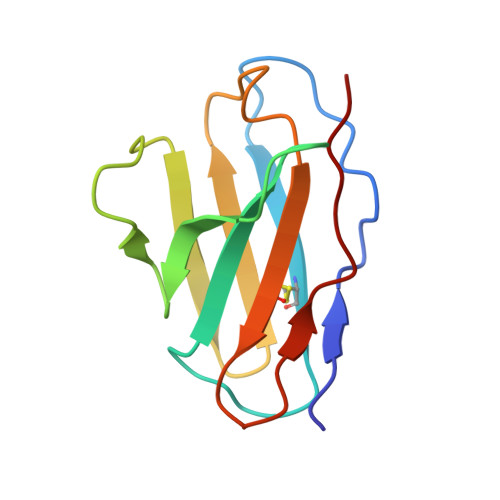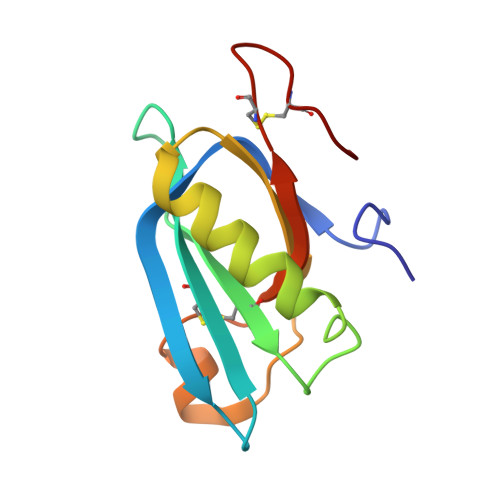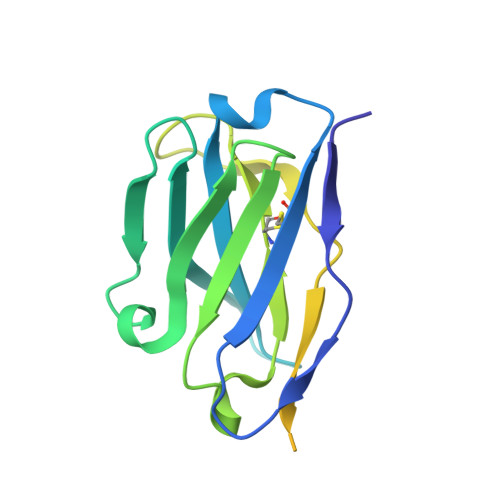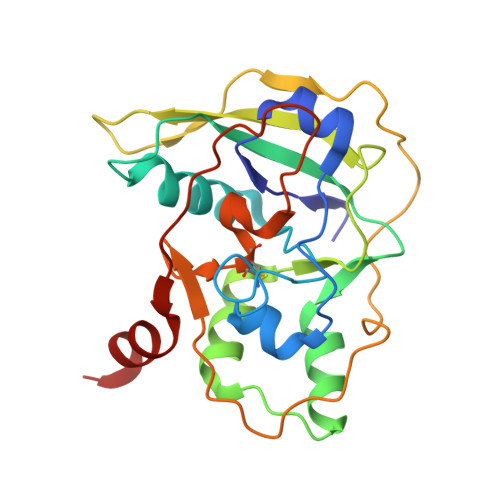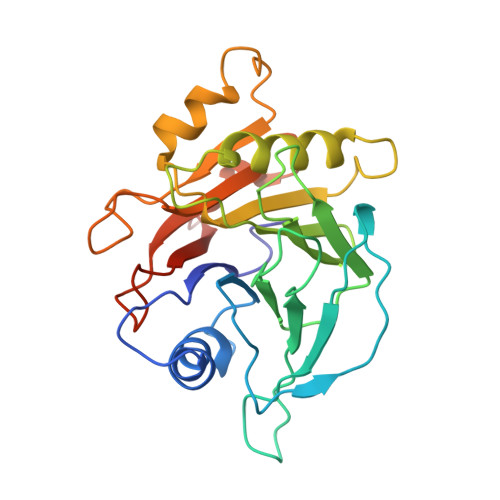Mechanisms of typhoid toxin neutralization by antibodies targeting glycan receptor binding and nuclease subunits.
Ahn, C., Yang, Y.A., Neupane, D.P., Nguyen, T., Richards, A.F., Sim, J.H., Mantis, N.J., Song, J.(2021) iScience 24: 102454-102454
- PubMed: 34113815
- DOI: https://doi.org/10.1016/j.isci.2021.102454
- Primary Citation of Related Structures:
6VX4 - PubMed Abstract:
Nearly all clinical isolates of Salmonella Typhi, the cause of typhoid fever, are antibiotic resistant. All S. Typhi isolates secrete an A 2 B 5 exotoxin called typhoid toxin to benefit the pathogen during infection. Here, we demonstrate that antibiotic-resistant S. Typhi secretes typhoid toxin continuously during infection regardless of antibiotic treatment. We characterize typhoid toxin antibodies targeting glycan-receptor-binding PltB or nuclease CdtB, which neutralize typhoid toxin in vitro and in vivo , as demonstrated by using typhoid toxin secreted by antibiotic-resistant S. Typhi during human cell infection and lethal dose typhoid toxin challenge to mice. TyTx11 generated in this study neutralizes typhoid toxin effectively, comparable to TyTx4 that binds to all PltB subunits available per holotoxin. Cryoelectron microscopy explains that the binding of TyTx11 to CdtB makes this subunit inactive through CdtB catalytic-site conformational change. The identified toxin-neutralizing epitopes are conserved across all S. Typhi clinical isolates, offering critical insights into typhoid toxin-neutralizing strategies.
- Department of Microbiology and Immunology, College of Veterinary Medicine, Cornell University, Ithaca, NY 14853, USA.
Organizational Affiliation:








